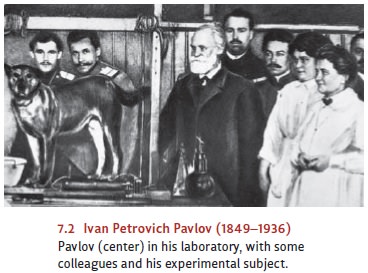Chapter: Psychology: Learning
Classical Conditioning
CLASSICAL CONDITIONING
Habituation is important, but it
tells the organism about only a single stimu-lus—is the stimulus novel and so
worth exploring, or familiar and therefore safe to ignore? Other forms of
learning provide more information and, in particular, provide the organism with
information about the relationships
among events in the world.
Relationships come
in many varieties.
One event might cause
another; an action might prevent
some outcome; a certain
circumstance might magnify an experience; and so on. Overall, though,
relationships can usually be understood in
terms of associations: Your dog
learns to associate
the sound of
your foot-steps with the
possibility of a treat; you have learned to associate thunder with
light-ning; the farmer’s
cows learn to
associate a certain
time of day with milking.
Th importance of these associations was,
as we’ve seen,
highlighted by the
empiricistphilosophers, but the experimental study of these associations
did not begin until theend of the late 1800s,
when the work of the Russian physiologist Ivan PetrovichPavlov (1849–1936) made a major contribution (Figure
7.2).

Related Topics